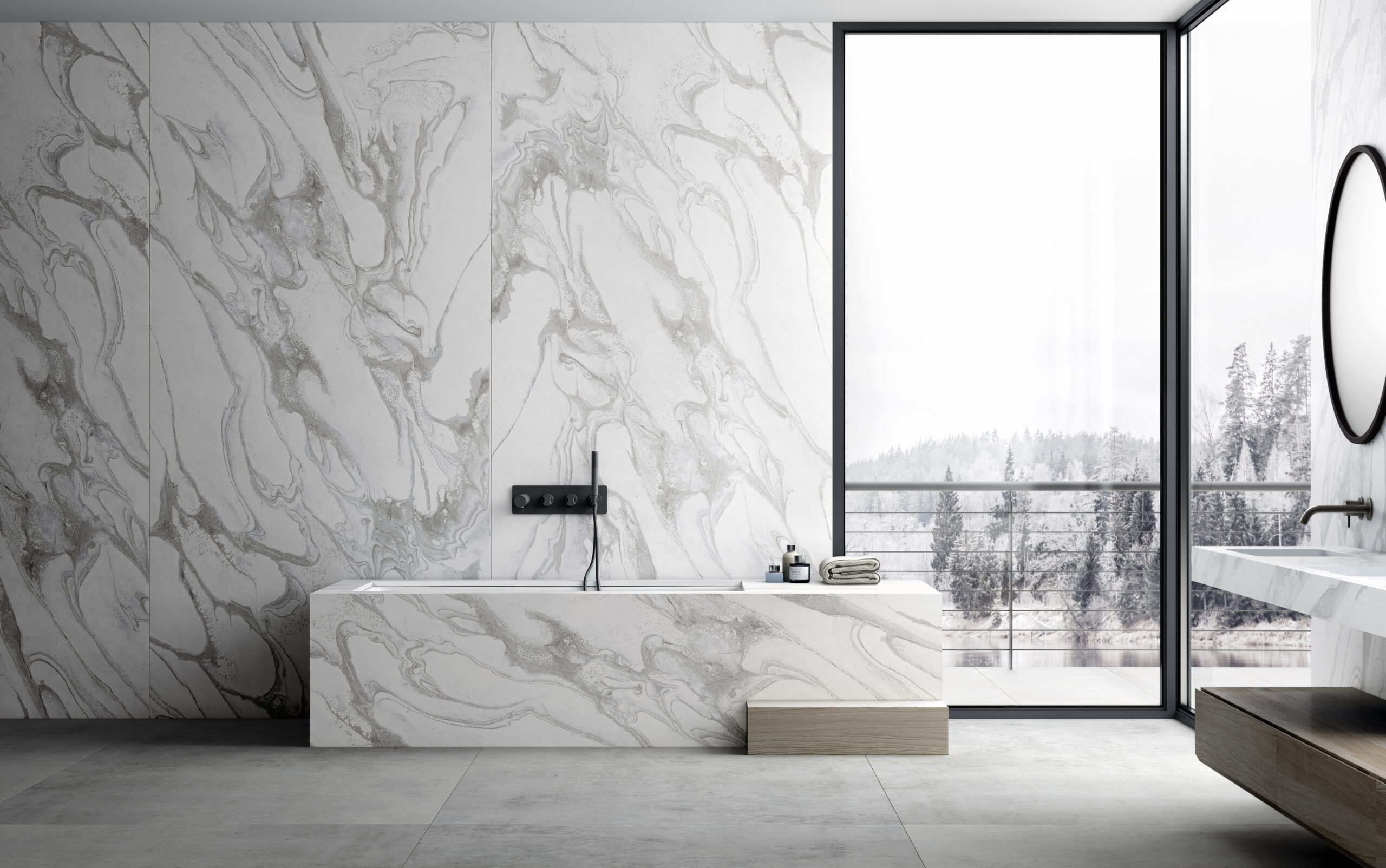In recent years, the construction and design industry has witnessed an increasing demand for innovative and versatile materials. One such material, porcelain slab products like Dekton, has gained significant attention for its remarkable properties.
What is Dekton?
Dekton is a high-performance porcelain slab product manufactured by Cosentino, a world-renowned leader in the production of innovative surfaces for architecture and design. It is created through a unique process called “sinterized particle technology,” which involves the application of intense heat and pressure to a mixture of raw materials, including quartz, porcelain, and glass. This process results in a highly compact and dense surface with excellent resistance to heat, scratches, stains, and UV rays.
One of the most notable advantages of Dekton is its exceptional durability and resistance to various environmental factors, making it an ideal material for outdoor applications. With its high resistance to UV rays, Dekton retains its color and finish even after long-term exposure to sunlight, ensuring a consistent and aesthetically pleasing appearance.
Moreover, Dekton’s low water absorption rate and freeze-thaw resistance make it an excellent choice for outdoor installations in areas with fluctuating temperatures and precipitation levels. Its non-porous nature prevents the growth of mold and mildew, further enhancing its suitability for outdoor environments.
Dekton’s impressive strength and versatility make it a popular choice for wall cladding applications in both residential and commercial settings. Its lightweight nature and large-format slabs facilitate easy installation and minimal joint visibility, resulting in a sleek and modern appearance.
In addition, Dekton’s resistance to scratches, stains, and chemical agents allows for easy maintenance and cleaning, making it a practical choice for high-traffic areas or spaces prone to spills and stains.
Despite its numerous advantages, Dekton may not be the best choice for countertop applications. Although it is highly resistant to heat and scratches, it is susceptible to chipping and cracking, particularly around the edges. In high-impact situations, such as dropping heavy objects on the countertop or applying excessive force, Dekton’s brittleness can become a liability.
Additionally, Dekton’s price point can be a limiting factor for some homeowners, as it tends to be more expensive than other popular countertop materials like granite or quartz. Furthermore, its limited availability and specialized installation requirements may deter potential customers from choosing it for their countertop projects.
Dekton’s unique properties make it an excellent choice for outdoor applications and wall cladding projects, where its durability, resistance to environmental factors, and aesthetic appeal can be fully utilized. However, its susceptibility to chipping and cracking, along with its higher price point, suggest that it may not be the most suitable material for countertop applications. Homeowners and designers should carefully consider the specific needs of their project before deciding on the most appropriate material, weighing Dekton’s strengths and limitations to make an informed decision.


